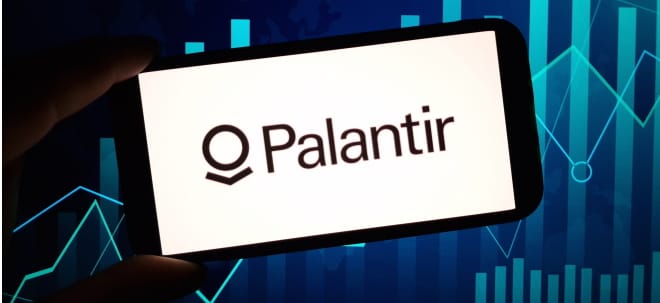I am going to lay out my take on Oct 22nd summary judgement hearing and you can decide on your own what you think here. Mordicai and Ram if you could respond, that would be great.
THJMW’s ruling against Divesture of Jurisdiction. From Court transcripts.
THJMW:
Although I’m not quite sure what I’m ruling on, there is no motion before me. There’s a notice of a divestiture, but I take it the parties are asking me whether the adversary proceeding will proceed, and in my opinion, yes, it will proceed. It is clear that the appeal of the denial of a motion to dismiss or the denial of a motion to stay a proceeding is not appealable. The only exception to that that has been cited is the collateral order doctrine.
The Supreme Court has made it clear that this is a narrow exception, and the Supreme Court held in Lauro Lines that it
does not apply to issues of where a party can be sued as
opposed to whether a party can be sued. Praxis is not
applicable. It dealt with whether a party can be sued, i.e.,
whether a 90-day stay applied or a 45-day stay applied, not
to an issue of where a party can be sued. So it just is not
applicable to this case. The fact that JPMC has continued to
appear before me and to continue to proceed with this
adversary for the past four months, I think evidences an
acknowledgment that really their position is frivolous. Need
I say it, I do say it, the argument is frivolous that the
collateral order doctrine applies.
JPM lawyer (Sacks)stated in his argument(That’s
why the impact on the lower court is, you review it simply to
determine if the appeal is frivolous and as the Third Circuit
said, You’re inquiry must be one for frivolousness, and you
either need to recognize the divestiture or find by written
findings that the appeal is one that’s frivolous, Your Honor.)
THJMW
With respect to the merits of the appeal, I’ve already made my ruling on that numerous times. I need not issue it again. I think the decision of JPMC that I do not have jurisdiction is frivolous. The adversary proceedings will proceed until and
unless the Appellate Court decides otherwise, but they need
not be held up pending that appeal.
MR. ELSBERG: Your Honor, if I might, I was just
hoping that I could raise the issue of scheduling a hearing
date for the summary judgment motion on the deposit issue,
and we would propose, if it works for you.
Move to Summary Judgement.
From May 22nd Brief
JPM Morgan has refused to pay the debtors more than 4 billion in deposits that belong to them, thereby depriving the bankruptcy estates of one of their most valuable assets. As there is no legal or factual justification of why JPMC refuses to pay, it appears that JPMC is holding onto these deposits for as long as it can so it can unjustly profit from the use of the capital. This is a palpably improper basis for depriving the debtors (and their creditors)of more than 4 billion that rightfully belongs to their estates and plaintiffs have brought this motion to promptly secure the return of their funds. Moreover because the specific issue of the debtors rights to these monies is clear and indisputable, the debtors respectfully move for summary judgement to obtain an order requiring JPMC immediately to turn over those monies to the debtors so they can be turned over to the estates and be distributed in connection with the Chap 11 BK reorg plan.
What evidence needs to be produced for a judge to rule in the plaintiffs favor.
A. Summary Judgment Standard
Under Rule 56 of the Federal Rules of Civil Procedure, summary judgment is appropriate if the pleadings, depositions, answers to interrogatories and admissions on file, together with the affidavits, if any, show that there is no genuine issue as to any material fact and that the moving party is entitled to judgment as a matter of law. (Logan Deposition) See Fed. R. Civ. P. 56(c). Material facts are those that “might affect the outcome of the suit under the governing law.” Anderson v. Liberty Lobby, Inc., 477 U.S. 242, 248 (1986).
325 (D.C. Cir. 1989).
IMHo>>Maybe, what the court has before them is
1. Deposit account statements issued from JPMC that says you have this much money in the account.
2. Logan deposed on the transferring and the amount of monies transferred and where it came from. Logan stating it was Standard Operating procedure and proper paperwork was executed, the account numbers were wrong. Logan testifying that the monies did in fact belong to the parent and were part of the moving of the parents funds. Mistake was corrected as sson as it was noticed.
3. No person at JPMC disputes this. Only their lawyers, who tried to hide behind the FDI act, which the court rejected, essentially throwing out the premise for their argument. Logan still works for JPM.
From WMI’s answer to JPM’s to turnover action.
On May22, 2009 the debtors filed their answer to JPMC’s complaint including 18 counter-claims (the counter-claims) asserting among other things the BK code’s avoidance provisions and under state law as inc by the BK code for avoidance of more than 10 BIL in preferential and fraudulent prepetition transfers of the debtors assets to WMB that were subsequently transferred to JPMC.
In the turnover action the debtors assert an UNQUESTIONABLE right to approx 4 Bil in deposits formerly held at WMB and WMBfsb demanding payment of those funds to the debtors estates.(The key word is UNQUESTIONABLE)
IMHO. In our case, what had to be proved is did the money that was deposited into the accounts legally belong to the WMI. If it does and it has been established that JPMC has continued to confirm this by sending bank account statements (every month) to the plaintiffs. The plaintiffs were told by JPM that the money did belong to them in Oct 2008 and it was not disputed then. The court should rule that the money put into the deposit accounts by a preponderance of the evidence did belong to WMI. JPM believed it did belong to WMI because it sent deposit account balance statements to them. The deposit account statements listed the amounts in each account and JPM assumed all deposit liabilities (as part of the legality of the P&A agreement [or they could just ask THJMW to void the P&A] ) and this was all that was needed to establish validity of the accounts and therefore the turnover action would have to go in favor of the plaintiffs (June Omnibus).
In the summary judgement the court has to determine if the deposits belong to the plaintiffs, the deposition by Doreen Logan in favor of WMI and no deposition in favor of JPM by any of its other employees should help the court determine validity and rule in WMI’s favor of Summary Judgement and instruct JPM to return the monies to the estate. JPM originally filed its briefs using a precedent of the FDI act to hide behind the court rejected that and now in all briefs since then, JPM has not referenced the FDI act that they originally filed as the reason the court could not decide this. JPM has had their motions to dismiss the adversary proceedings denied, the plaintiffs have filed their own adversary proceeding that references their 18 counter-claims (listed in the stick post up above) and have been granted the right by the court for them to be heard. One of the claims is the turnover action and subsequent summary judgement. I have a feeling Logan’s deposition was very favorable to the plaintiffs, this is why JPM moved to strike part of it (which THJMW denied) because JPM cannot establish any evidence supporting their statements other than the FDIC says “It’s ours!” WMI has put the money on their MOR’s and is therefore figuring it in.
IMHO…THJMW should rule in our favor. I cannot wait to hear her ruling on Oct 22nd. .
http://investorshub.advfn.com/boards/read_msg.aspx?message_id=42552524 -----------
An der Börse sind 2 mal 2 niemals 4, sondern 5 minus 1.
Man muß nur die Nerven haben, das minus 1 auszuhalten. |


 Thread abonnieren
Thread abonnieren

